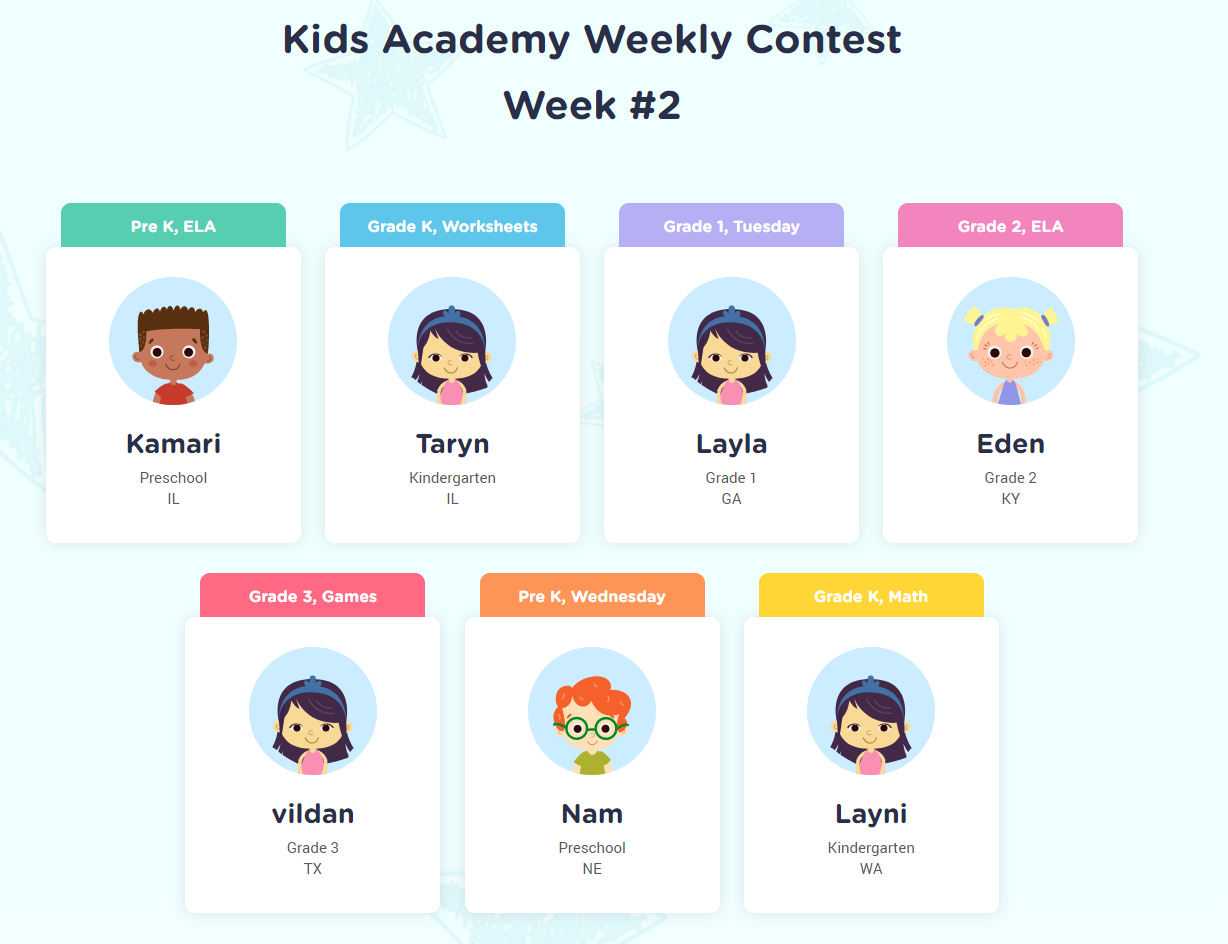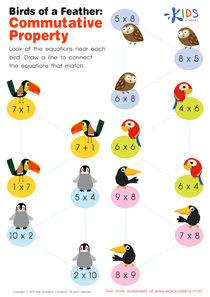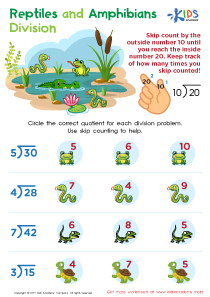Understand number relationships Grade 3 Math Worksheets
3 filtered results
-
From - To
Discover our engaging "Understand Number Relationships" Math Worksheets designed for Grade 3! These printable resources focus on essential concepts such as comparing numbers, identifying patterns, and understanding greater than and less than relationships. Our worksheets provide diverse activities to help students enhance their problem-solving skills and deepen their mathematical understanding. With vibrant illustrations and a variety of exercises, your child will enjoy learning while building confidence in their math abilities. Perfect for classroom use or homeschooling, our worksheets simplify complex ideas and promote critical thinking, ensuring a solid foundation for future math success. Get ready to make learning both fun and effective!
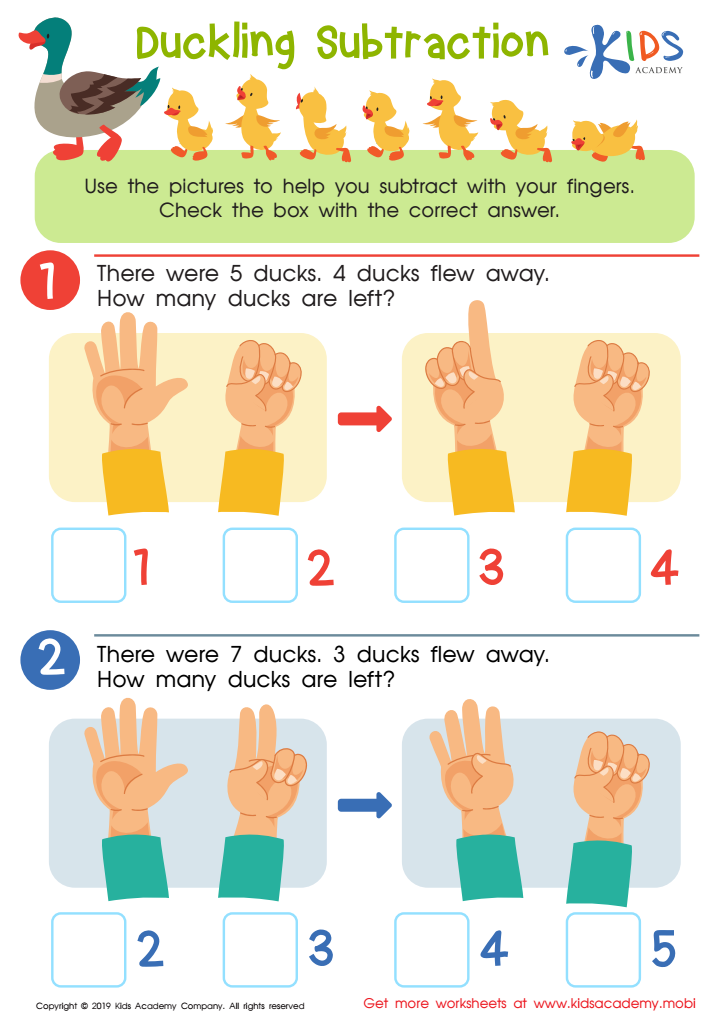

Duckling Subtraction Worksheet
Understanding number relationships is crucial for Grade 3 students as it lays the foundation for their mathematical learning. In this stage, children transition from concrete counting practices to more abstract concepts, making sense of how numbers are interconnected. By grasping these relationships, students improve their problem-solving skills, as they learn to recognize patterns and make connections among numbers.
For parents and teachers, encouraging this understanding can foster resilience in students when tackling more complex math concepts in the future. Mastering number relationships helps children develop a strong number sense, aiding in arithmetic operations, fractions, and even early algebra. This new ability to visualize and manipulate numbers increases confidence, enhances critical thinking skills, and promotes a positive attitude towards math.
Moreover, facilitating a rich arithmetic environment can ultimately engage students, making math relatable and enjoyable. Collaboration between parents and teachers reinforces these lessons, showing children that math is a valuable and applicable skill. Engaging in activities that promote number relationships prepares students not only for standardized tests but for real-life numerical tasks, empowering them to become proficient, confident, and capable mathematicians.
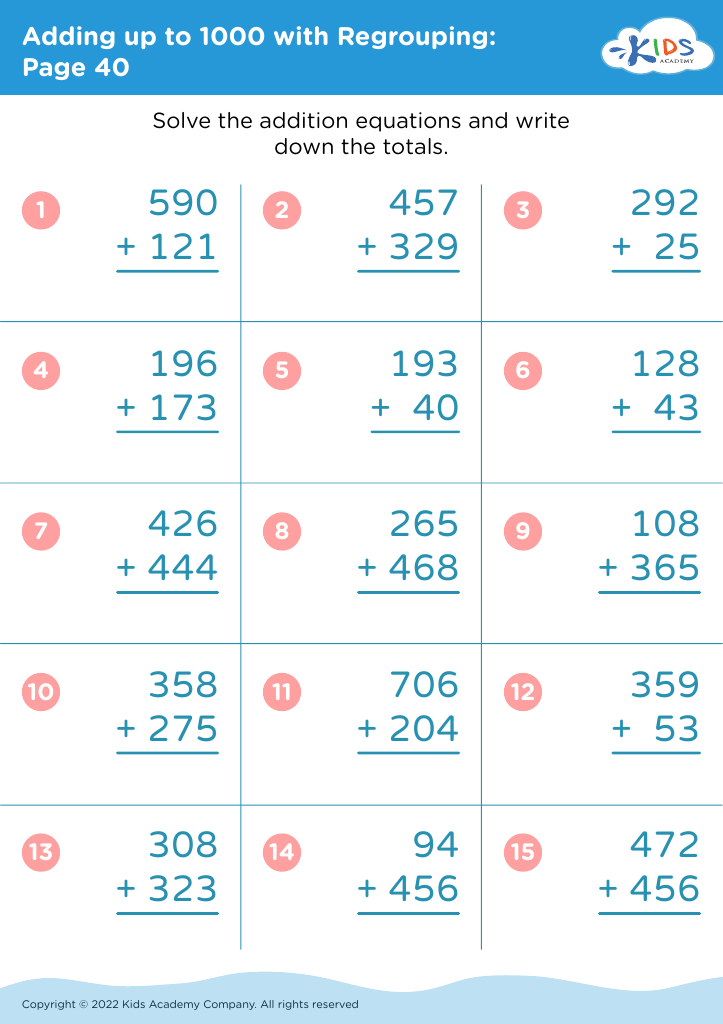
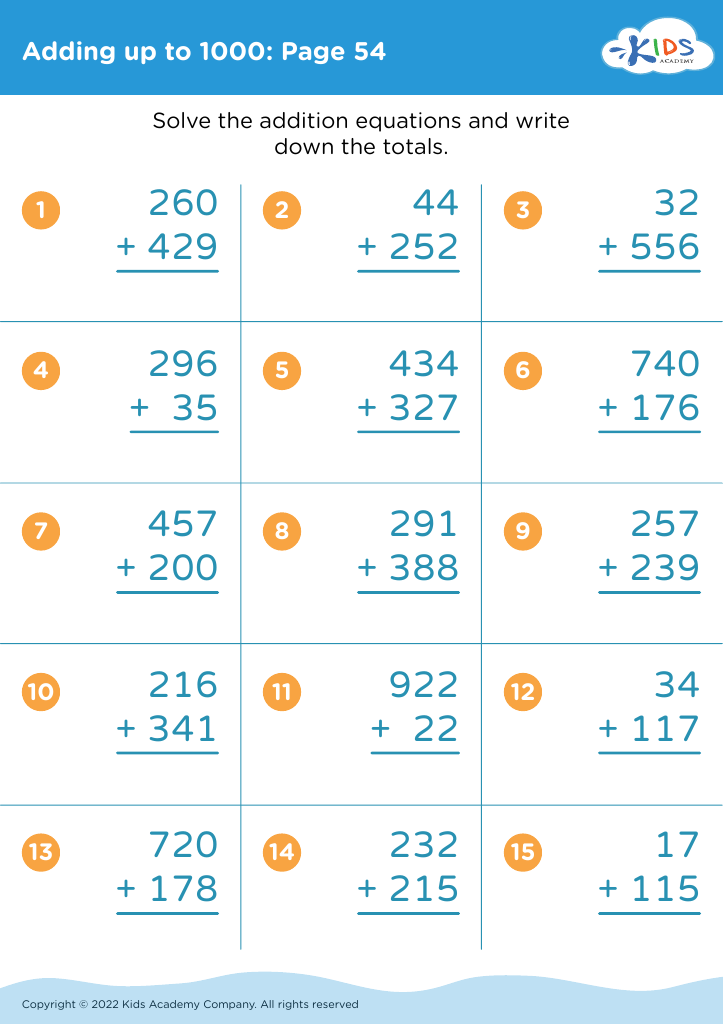
 Assign to My Students
Assign to My Students


